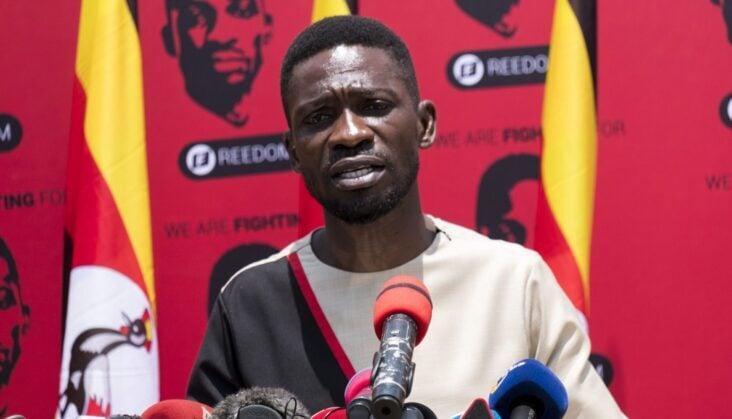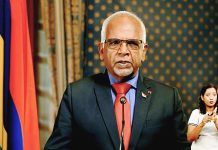Seth Onyango
Africa-Press – Mauritius. According to an elections observer, politicians are being forced to fashion political campaigns around youth empowerment to mobilise grassroots support as the youth vote sways political outcomes in Africa’s elections.
Increasingly, those politicians are pulling out all the stops to depict themselves as in sync with the youth and what afflicts them, using fashion, social media and slang to help. Even septuagenarian politicians are ditching bespoke suits and ties for embroidered t-shirts, fancy pants and designer sneakers.
Some are using ‘slanguage’ in their campaign messaging, while others are up to date with the latest songs and dance moves in a bid to cut beguiling, youthful figures and, almost all are armed with young, tech-savvy professionals able to craft appealing messages for dissemination on social media.
With almost 60% of Africa’s population under the age of 25, politicians failing to keep up with these trends, do so at their peril. The Population Reference Bureau has forecast that young Africans will make up 42% of the world’s youth by 2030, while in Africa the under-35’s will amount to 75% of the total population by that year.
Political analyst and attorney Kissinger Kakai noted that the level of desperation amongst politicians desperate to “keep up to date” highlights the growing power of Africa’s youth.
“Youth are the majority in Africa and there is no politician who wants to go into an election without pulling the masses of the youth behind them.
. but politicians must (work) hard to ensure they turn out to vote,” he opined.
One of the tactics that politicians use to ensure that the youth participate in electoral processes is to craft a message and dress in a manner that resonates with them.
But he argues that being youthful is not enough, asserting that young Africans are now informed and want to discuss issues and not ethnic identity or turf politics.
“In Kampala, they (the youth) were rooting for Bobi Wine, not because he is a musician but (because of) his agenda for the nation,” he noted. In Kenya, the “hustler” vs “dynasty” debate is defining the country’s politics and delinking ethnicity and politics.
Kakai, who was an election observer in the recently-concluded Zambian general election, credits targeted messaging for the election of veteran opposition leader, Hakainde Hichilema as president.
“He told the youth ‘I know your problems.
. I am a businessman and I know you have no jobs’. . . and promised to change their lives,” Kakai explained.
In a campaign video touted as a political masterstroke, the Zambian leader described himself as an ordinary Zambian who herded his family’s livestock in his youth before becoming one of the state’s richest men. Meanwhile, the power of mainstream media to give deep-pocketed politicians an edge over their youth counterparts is waning.
Youthful aspirants now target voters directly through short videos and campaign posters shared on platforms such as WhatsApp, Facebook and Telegram, recruiting “keyboard warriors” on Twitter to push their messages.
Social media has been instrumental in Africa’s political struggles where the youth mobilised and led revolutions that toppled dictatorship and ageing leaders, famously during the Arab Spring that swept across Tunisia, Algeria, Egypt and Libya – and more recently, in Sudan.
In Kenya, Uganda, Rwanda and Nigeria – where the editor of a news platform (Sahara Reporters) targeting a youth readership is contesting the next presidential election – youthful leaders are pushing for reforms and vying for political leadership.
According to the Centre for Strategic and International Studies (CSIS), the leading opposition parties in Botswana, Lesotho, Malawi, Namibia, South Africa, and Zimbabwe are all led by men in their thirties and forties.
With the world’s oldest presidents running the youngest continent, the youth in Africa are turning to more of their kind to lead – and hopefully, bring about – change.
The ability for young people to seek elective office as independent candidates (without belonging to a political party) is also giving the youth a direct route to the electorate – where they don’t have to kowtow to party leaders or play loyalist politics.
In Kenya, more than 30 MPs are under the age of 35, with a significant majority of the state’s bicameral chambers aged below 50. Parliamentary Monitoring Group (PMG) in South Africa shows that 30 members of the National Assembly (nine per cent) fall under the category of youth (35 and younger), with 77 (23) aged between 36 and 45.
While the number of youthful leaders is far from ideal in Africa, places like Nigeria, Tunisia, Madagascar, Tanzania and Senegal are pushing for better political representation. In troubled Sudan, young people are showing the willingness to lead and clean up the political morass that has held the state back for generations.
Source: Theafricareport
For More News And Analysis About Mauritius Follow Africa-Press







